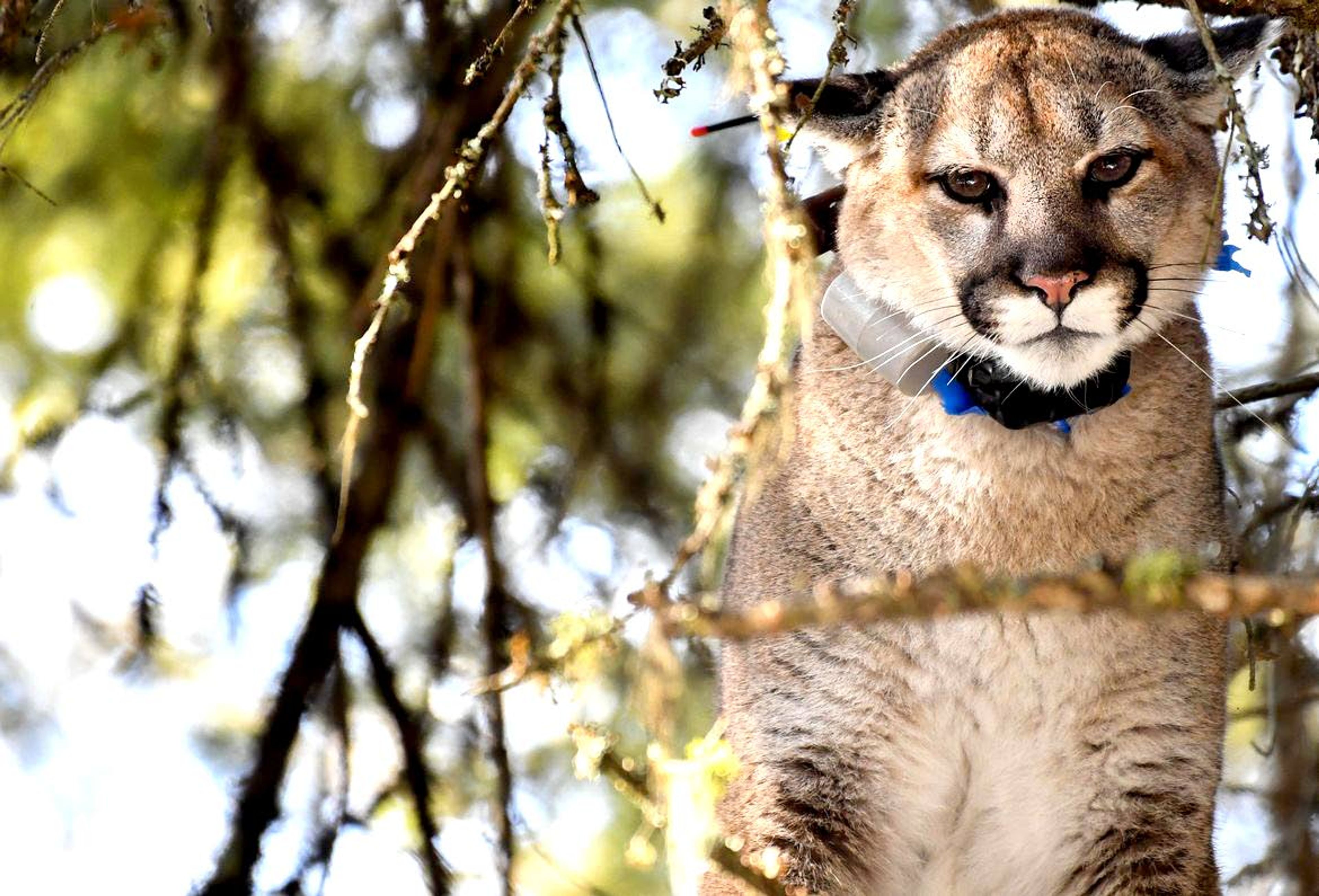Hound training restored in Washington
Wildlife panel approves limited program for nonlethal pursuit of bears and big cats
The Washington Department of Fish and Wildlife Commission approved a limited hound pursuit training program recently.
The program will allow agency-approved hound handlers to nonlethally pursue cougars, bears or bobcats to train their dogs. The commission voted 4-3 in favor of the rule.
The training is necessary, according to the department and hound handlers, to keep the dogs trained and effective. Under state law, the agency is allowed to use dogs to hunt or pursue black bears, cougars or bobcats if there is “a public safety need; to protect livestock, domestic animals, and private property; for scientific purposes; or to protect endangered species.”
Because of a 1996 citizen initiative that banned hound hunting in Washington, hound handlers have had to train their dogs out of state.
The department’s enforcement branch works with about 20 hound handlers throughout the state.
“It’s an important program and I’m pleased we have it instated,” said commissioner Kim Thorburn, of Spokane. “We recognize the need for the hounds and the use of them for public safety in northeast Washington.”
Under the program, hound handlers will coordinate with regional enforcement staff to get approval to train on specific days in specific areas. They will be required to fill out a log sheet including, among other things, GPS markers, roads traveled, whether they saw a cougar and if any weapon was discharged. Agency staff hope to have the training program up and running within six months, although it may take longer.
Some environmental groups decried the decision.
“I’m very concerned about the potential for abuse of hound hunting under this newly created program,” said Sophia Ressler, a Seattle-based staff attorney at the Center for Biological Diversity in a news release. “Without additional safeguards and staff for enforcement, this new program doesn’t appear up to the task of protecting wildlife or the will of the voters who passed the initiative banning hound hunting.”
A few components of the training program were changed in response to public input, said Becky Bennett, the spokeswoman for the agency’s enforcement division and the project manager for the new training program.
“We have worked with external stakeholders from Day 1 on this,” she said. “This isn’t something that we’re creating this is something we’re (creating) alongside other organizations.”
In particular, the depadrtment changed its proposal to prohibit hound handlers from tracking cougars with spotted kittens.
Ressler doesn’t believe that restriction will do much, pointing out that hound tracking is scent-based and that it’s “unlikely that you know what exactly you’re tracking until it’s potentially too late to observe that cat has kittens.”
Instead, she believes the agency should have included date and geographic restrictions. Date restrictions would prevent accidentally chasing spotted kittens, and geographic restrictions would prevent hounds and wolves from coming into conflict.
“There is a lot of conflict between hounds and wolves during these training programs,” she said, referencing research from Wisconsin looking at similar training programs. “Even though they are not in pursuit of the wolves.”
During the commission meeting Friday, Ressler argued that the state should have undergone a State Environmental Analysis before moving forward.
The Center for Biological Diversity will consider filing a lawsuit challenging the legality of the rule under SEPA, she said.
Hound handlers applauded the decisions. The agency received 240 public comments, with 179 in support of the training program. During a Dec. 4 commission meeting, 23 people testified with nine in support and 12 opposed.
“I’m so glad to see that go through finally. That’s been a long time coming,” said Bart George, a biologist for the Kalispel Tribe and a hound handler.
“It’s just hard to train a dog without on-the-ground exercises.”
Having trained and competent hound handlers is, in some cases, a matter of public safety George said.
For instance, in 2019, a cougar attacked and injured a boy in Leavenworth, Washington. There were no state-approved houndsman close enough to respond to the incident, Bennett said.
“This is a tool to make sure we do have those individuals available,” she said.
“It’s an important program and I’m pleased we have it instated. We recognize the need for the hounds and the use of them for public safety in Northeast Washington.”
Kim Thorburn, of Spokane









